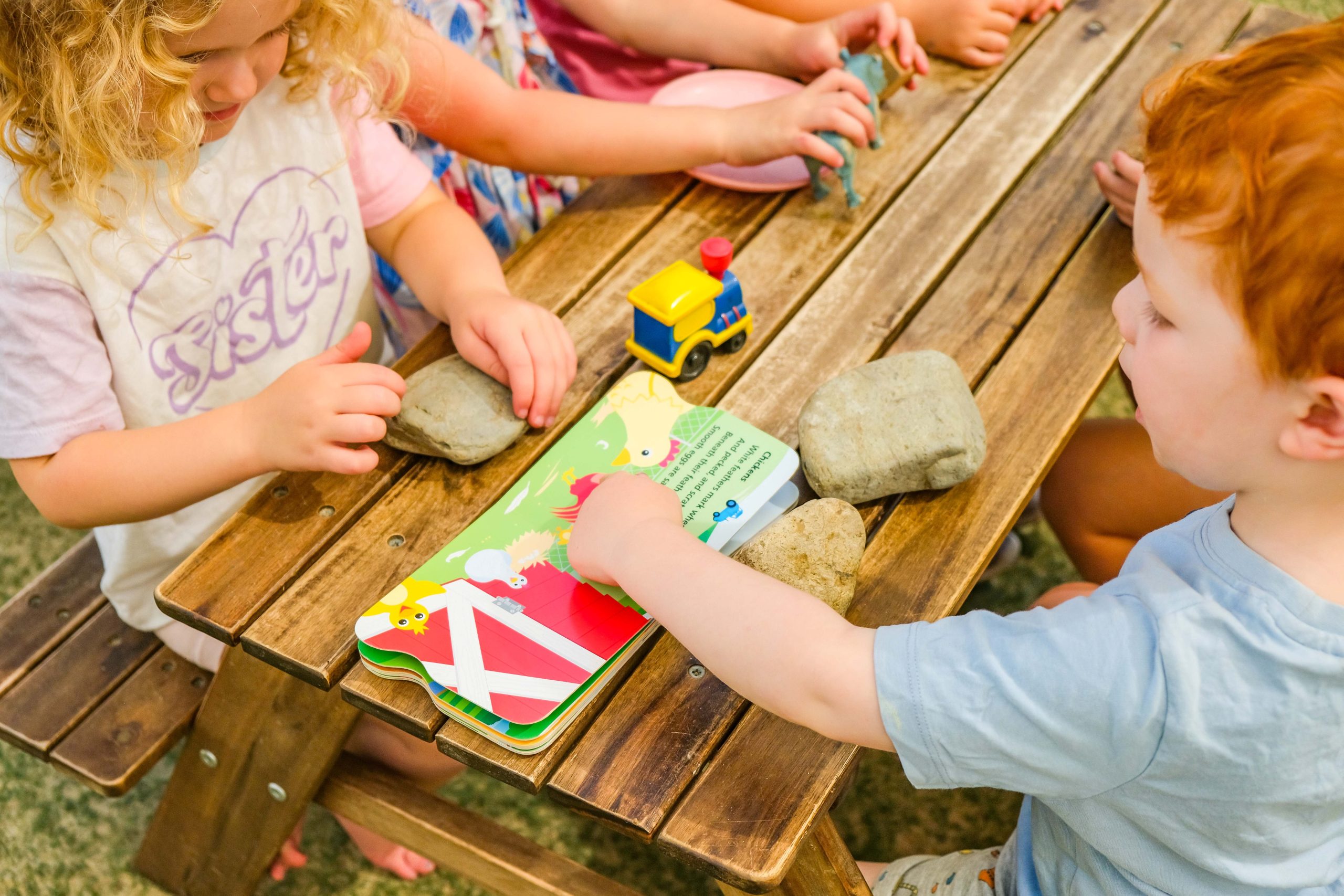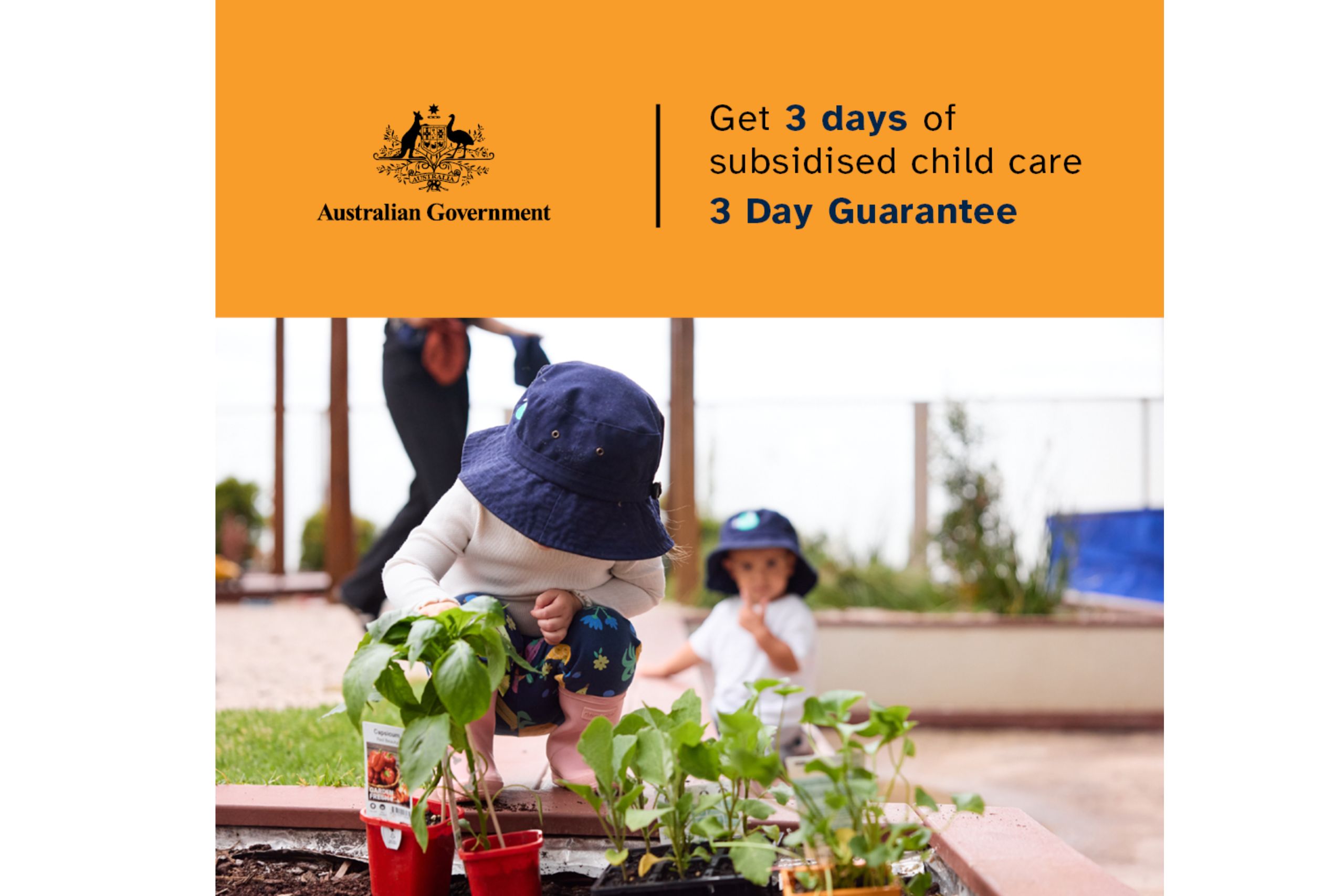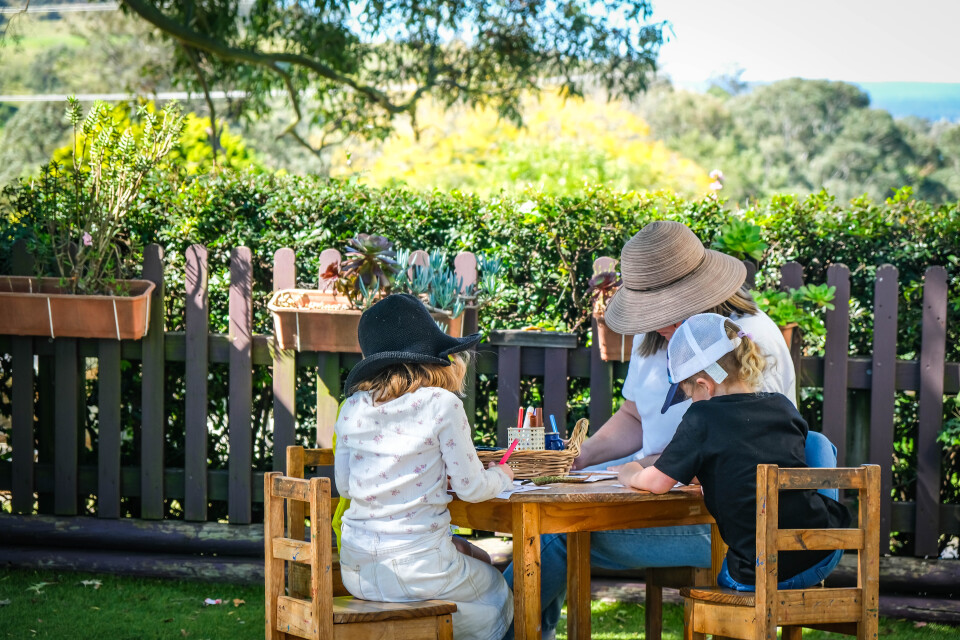The Illawarra Transition to School Program has been designed to support families as they get ready to start Kindergarten. The program supports the whole Illawarra region and works with families with children aged from Birth-5. The role of the TTS program is to provide you with the best information, advice, and support to empower you to make the best decisions for your family.
Billy Backpack is the friendly mascot for the Illawarra Transition to School Program! You may see him out and about in the community visiting libraries, shopping centres, or parks, or maybe even at preschools. As our mascot, Billy supports the program to engage with families and children and start discussions about transitions to school. Whenever he’s out and about in the community or visiting preschool children, he brings goodie bags full of information about transitioning to school.

Why are transitions important?
Starting school is an exciting time for children and families, but it can also be quite overwhelming. It’s a period of significant change and involves adjusting to new routines, environments, and expectations. The more we can support children before they enter their new school environment, the easier it is to adjust to the new environment and the increased likelihood of personal and school success. Transitions help children to better understand and prepare for this next chapter in their lives. From the moment a child is born, their learning journey commences, preparing them for each stage of their educational learning journey. Reading with them, establishing strong sleep routines, organising play dates, and participating in visual arts are all experiences that support the development and support children once they start Kindergarten. The TTS program aims to highlight the important work families are already doing to transition children and connect them with information and supports to further assist with this.
What do we mean when we talk about ‘School Readiness’, and how can I support my child’s development?
When we talk about School Readiness, we’re talking about more than just reading, writing, and counting skills. Though those skills are important and will support children in the classroom, many other factors come into play before children are ready to learn. Families can support children’s holistic development- their social and emotional, cognitive, physical, and language development. It is important to remember that all children develop at their own pace and display varying strengths and abilities in different areas.
“Cognitive development describes how children process, store and use information, think, and reason. Children’s thinking processes involve higher mental processes such as memory, problem-solving, hypothesising, decision-making, and categorising. Cognitive development is important for children to understand and make sense of the world around them”1.
“Physical development outlines how children develop their fine and gross motor skills, muscle strength, balance, and coordination. Fine motor skills refer to the development of small muscles, and gross motor refers to the development of large muscles in the body. The physical growth of children assists in understanding the patterns of physical development. For example, large muscles (neck, torso, legs, and arms) often develop before small muscles (fingers, hands, wrists). Furthermore, children’s muscles tend to develop from head to toe and inside (torso/core strength) to outside hands/feet).”1.
“Language development refers to how children develop the ability to communicate using both speech and language. Language skills can be divided into two main types; receptive language (ability to understand words, sentences), and expressive language (produces words or ability to express themselves). Children often develop receptive language skills prior to express language skills. Language development also includes the development of phonics (how sounds are structured), semantic (how words are used to express concepts), grammar and pragmatics (rules of language)”1.
“Social development relates to how children develop the ability to interact with others, develop relationships, friendships and handle conflict with others. Social development is very closely aligned with emotional development, as children gain an understanding of who they are, what their capabilities are, and how to self-regulate emotions within social situations”1.
Emotional development defines how children develop the ability to identify, express, manage and understand a range of emotions and feelings during various stages of their life. Emotional development is complex, as children need to understand how their own feelings and responses affect themselves and others around them. Children’s emotional development can be influenced by their temperament, attachments, and relationships with others and their social and cultural context”1.
The following resources further highlight how we can support children’s development across these domains and some questions to consider when deciding whether your child may be ready to transition to Kindergarten. Please note- these resources are not a checklist, and your child may not have all these skills by the time they start Kindergarten, and that’s okay. These resources have just been created to explain what some skills in these developmental areas may look like and what you can do at home to support this development.
And what about transitions during COVID?
COVID-19 has interrupted all aspects of our lives, including regular Transition to School practices, programs, and events.
At this point, all on-site school orientation or open days in Illawarra schools are suspended. Due to the nature of the current situation, we don’t know when these programs will be able to resume.
So how can you support yourself and your children through this uncertainty and still support them to transition to school?
– Follow the school your child is enrolled to attend in 2022 on Facebook. This is where they will be sharing the most up-to-date information about their COVID practices at this time. They may also be planning online information sessions, tours, or programs to support you at this time.
– Continue having conversations about school with your little ones. Read stories, visit your school website, and talk about your own experiences at school.
– Address concerns your little one might have about starting school. Although we don’t have all the answers for what school will look like next year, we are still able to validate children’s feelings and remind them that we can work through big feelings together.
– Follow the NSW Department of Education on Facebook for the latest information on COVID and its impact on schools.
– Access excellent resources to help support your child’s development from the NSW Department of Education and Transition to School websites:
https://www.transitiontoschool.com.au/
https://education.nsw.gov.au/…/resources-for-families
The Illawarra Transition to School Program will continue to share the most up-to-date information possible regarding Transition to School practices at this time, so make sure you have notifications on for new posts from us.
Written by: Anabel Mifsud



